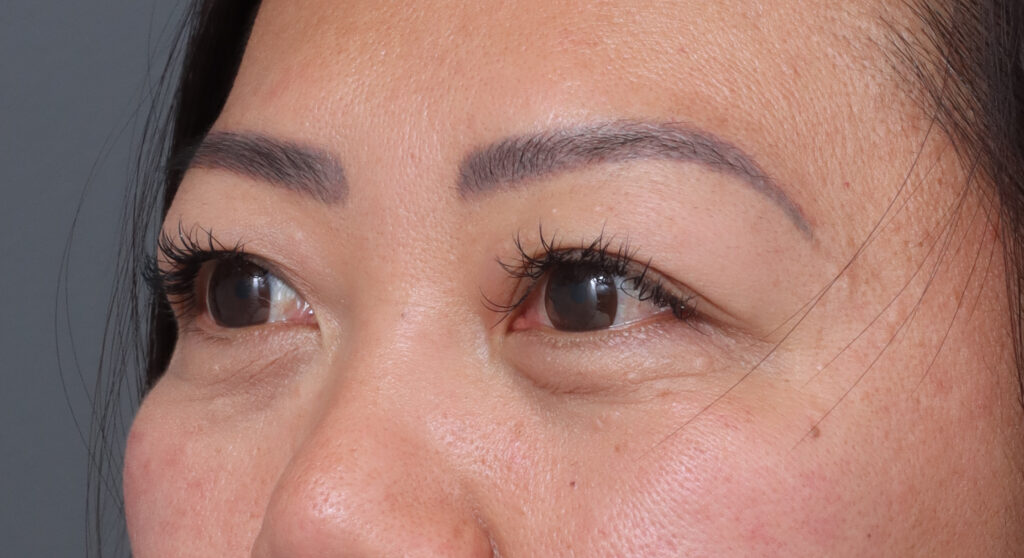Cataract surgery is a common procedure that can significantly enhance the quality of life for those affected by vision impairment. With numerous options available in Sydney, selecting the best care involves understanding the nature of cataracts, the types of surgeries offered, and the clinics providing these services. In this article, we delve into each aspect to ensure you make an informed decision regarding your eye health.
Understanding Cataract and Its Impact on Vision
Cataracts are a prevalent eye disorder, and understanding them is essential for anyone considering surgery. A cataract develops when the natural lens of the eye becomes cloudy, often attributed to aging or certain medical conditions. This cloudiness impairs the passage of light to the retinal eye, resulting in blurred vision.
As cataracts progress, they can lead to significant vision problems. Activities such as reading, driving, and even recognizing faces can become increasingly challenging. Therefore, staying informed about the implications of cataracts is crucial for early intervention. In fact, many people may not realize they have cataracts until their vision has deteriorated significantly, which underscores the importance of regular eye examinations, especially for those over the age of 60.
The Basics of Cataract
Cataracts can form at different ages, but they are most commonly associated with old age. It is essential to know that they can occur in one or both eyes. Fortunately, cataracts can be treated effectively through surgery, which involves removing the cloudy lens and replacing it with an artificial one. This procedure, known as phacoemulsification, is minimally invasive and often performed on an outpatient basis, allowing patients to return home the same day.
There are various factors that contribute to the development of cataracts, including genetics, prolonged exposure to UV light, smoking, and certain health conditions such as diabetes. Recognizing these can help in preventative measures or early detection. Additionally, a healthy lifestyle, which includes a balanced diet rich in antioxidants, regular exercise, and protective eyewear, can play a significant role in reducing the risk of cataracts and maintaining overall eye health.

Symptoms and Risks of Cataract
Common symptoms of cataracts include blurred vision, difficulty seeing at night, sensitivity to light, and seeing halos around lights. The progression of these symptoms necessitates professional evaluation and can dramatically vary among individuals. Some may experience a gradual decline in vision, while others may notice sudden changes that can be alarming. It is important to monitor these symptoms closely and seek medical advice as soon as they are observed.
While cataract surgery is generally safe, there are risks involved, including infection, bleeding, or retinal detachment. However, the benefits of clearer vision often outweigh these risks for many patients, making it crucial to consult with an experienced ophthalmologist for a thorough assessment. Post-surgery, many patients report significant improvements in their quality of life, with the ability to engage in activities they once found difficult. Furthermore, advancements in surgical techniques and technology have continuously improved outcomes, making cataract surgery one of the most commonly performed and successful procedures in modern medicine. Read about improving your quality of life at https://www.academia.edu/8789306/Approaches_to_Improving_the_Quality_of_Life
The Importance of Choosing the Right Cataract Surgery
Selecting the appropriate cataract surgery is critical for achieving optimal vision outcomes. With advancements in technology, there are now several surgical options available, and each option has distinct features that can cater to individual patient needs and preferences.
Factors such as the type of cataract, personal health history, and lifestyle should influence the choice of surgery. Consulting your ophthalmologist about these aspects can provide valuable insights into the most suitable procedure for your situation.
Factors to Consider When Choosing a Surgery
When evaluating cataract surgery options, consider the following factors:
Type of Cataract: Depending on the type and severity, certain surgical options may be more indicated than others.
Your Lifestyle: Activity level and visual demands are important in determining the best surgical approach.
Health Conditions: Pre-existing conditions may affect the choice of surgery and the type of lens used post-operatively.
Additionally, understanding the potential recovery time and post-operative care required for each surgery can assist in making a more informed decision. For instance, some patients may prefer a quick recovery period to return to their daily activities, while others may prioritize achieving the best possible visual acuity, even if it means a longer healing process. It’s also worth noting that advancements in minimally invasive techniques have significantly reduced recovery times for many patients, allowing them to resume their normal routines sooner than in the past.
The Role of Your Ophthalmologist in Decision Making
Your ophthalmologist plays a pivotal role in guiding you through the decision-making process. They can assess your vision and the extent of your cataract, explaining the options available while considering your specific circumstances.
During the consultation, be prepared to disclose your medical history and any concerns you may have. A good ophthalmologist will take the time to understand your priorities and help outline the expected outcomes of each surgical option, ensuring you are fully informed before making a decision. They may also discuss the latest innovations in intraocular lenses, such as multifocal or toric lenses, which can provide enhanced vision at various distances and correct astigmatism, respectively. This personalized approach not only fosters trust but also empowers you to make choices that align with your vision goals and lifestyle needs.
Overview of Cataract Surgery Options in Sydney
Sydney boasts a range of cutting-edge cataract surgery options, catering to varying patient needs and preferences. Understanding the types of surgeries available can assist in determining which is most suitable for you.
The two primary approaches to cataract surgery in Sydney are traditional cataract surgery and the more advanced laser-assisted cataract surgery, each with unique benefits.
Traditional Cataract Surgery
This method involves a small incision in the eye’s surface to extract the cloudy lens, followed by the placement of an intraocular lens (IOL). The traditional technique has been successful for decades and retains a high success rate.
Recovery from traditional surgery typically involves short-term follow-up care, which is vital in ensuring proper healing and adaptation to the new lens. Patients often report significant improvements in vision shortly after the procedure. Additionally, the familiarity of this method among surgeons means that many patients feel more at ease knowing they are receiving a well-established treatment. Surgeons can also provide personalized care based on their extensive experience with this technique, which can be reassuring for those apprehensive about eye surgery.
Laser-Assisted Cataract Surgery
Laser-assisted cataract surgery employs advanced technology to perform the procedure with greater precision. The use of laser can help in the initial incision and lens fragmentation, resulting in less trauma to the eye.
Patients who undergo this type of surgery often experience quick recovery times and less postoperative discomfort. This option may be particularly suitable for patients with certain eye conditions that require meticulous surgical intervention. Furthermore, the precision of laser technology allows for customized treatment plans, which can enhance the overall outcomes for patients. Many clinics in Sydney also offer advanced imaging systems that help surgeons map the eye in detail, ensuring that the IOL is placed in the optimal position for the best possible vision correction.
In addition to these surgical options, Sydney’s ophthalmology centers often provide comprehensive pre-operative assessments and post-operative care. This holistic approach ensures that patients are well-informed about what to expect during their recovery and can address any concerns they may have. With a focus on patient education, many clinics also offer resources and support groups that help individuals navigate their journey through cataract surgery, fostering a sense of community and shared experience among patients.
Comparing the Top Cataract Surgery Clinics in Sydney
Choosing the right clinic for your cataract surgery is as crucial as selecting the type of surgery. In Sydney, various clinics offer exceptional services, each specializing in different aspects of cataract care.
It’s advisable to research and consult multiple clinics to understand their specialties, services, and success rates before making your choice. Factors such as the qualifications of the surgeons, the clinic’s accreditation, and patient testimonials can significantly influence your decision-making process.
Clinic A: Services and Specialties
Clinic A is renowned for its extensive experience in ophthalmology and wide range of minimally invasive surgical techniques. They are equipped with state-of-the-art technology and offer both traditional and laser-assisted cataract surgeries.
The clinic also provides comprehensive pre-surgery consultations, ensuring patients are well-informed about the procedures and post-operative care. Many patients have praised Clinic A for their compassionate staff and supportive environment. Additionally, Clinic A has a robust patient education program, which includes workshops and informational sessions that help demystify the surgical process, allowing patients to feel more at ease as they approach their surgery date.
Clinic B: Services and Specialties
Clinic B specializes in personalized patient care and has a strong focus on advanced technology and innovative surgical techniques. Known for their thorough diagnostic procedures and customized treatment plans, they ensure that each patient receives tailored care.
Furthermore, Clinic B provides detailed post-operative follow-up, helping patients navigate the recovery process more effectively and with greater confidence. The clinic also emphasizes the importance of patient feedback, regularly conducting surveys to improve their services and address any concerns. This commitment to continuous improvement has made Clinic B a favorite among patients who appreciate a clinic that listens and adapts to their needs, fostering a sense of community and trust.

Preparing for Cataract Surgery
Preparation is essential for ensuring a smooth surgical experience. Understanding what to expect during the pre-surgery and surgery day procedures can reduce anxiety and promote better outcomes.
It’s important to follow your ophthalmologist’s instructions and attend all recommended consultations to ensure optimal preparations are in place for your surgery.
Pre-Surgery Consultation and Examination
Before the surgery, a comprehensive eye examination will be conducted to assess the extent of your cataract and determine the best surgical approach. This examination typically includes various tests to evaluate eye health, vision clarity, and suitability for surgery.
Your ophthalmologist will discuss the risks and benefits associated with the surgery, along with addressing any concerns you may have. Clear communication plays a crucial role in alleviating fears and setting reasonable expectations. To learn about the things to do before surgery click here.
What to Expect on the Day of Surgery
On the day of your cataract surgery, it is helpful to arrange transportation, as you may not be able to drive immediately afterward. You will be given specific instructions related to dietary restrictions or medication requirements.
Upon arrival at the clinic, you’ll likely undergo pre-operative assessments and have the opportunity to ask final questions. Once the surgery is complete, you will be taken to a recovery area to monitor your condition before going home.
Post-surgery, it’s crucial to follow all recovery guidelines provided by your ophthalmologist to ensure proper healing and achieve the best possible results.
In conclusion, navigating the cataract surgery landscape in Sydney may seem overwhelming at first. However, understanding the condition, treatment options, and selecting the right clinic puts you on the path to clearer vision. Your journey to improved eyesight begins with informed choices and professional guidance.
Related : A Complete Guide to Cataracts Surgery: Types, Benefits, and Recovery

